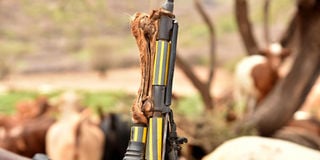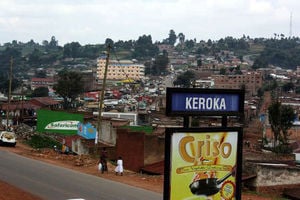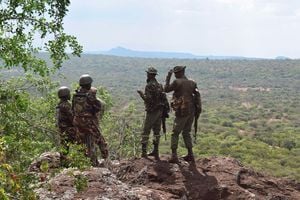
A herder's decorated gun.
Elders and residents of Angata Barikoi on the border of Narok and Migori counties have united to call for an end to a long-standing conflict over the ownership of more than 4,000 acres of land.
The land has been a source of contention between the Kipsigis, Maasai and Kuria communities for nearly 40 years, resulting in significant loss of life, livestock and property. The roots of the dispute can be traced back to 1979, when part of the land was illegally subdivided, leading to a protracted legal battle.
“Police who have been deployed to the area have not helped to cool down the tension as destruction of crops and property continues,” said Mr Johana Kamalal Langat, a local leader.
Community leaders have said that a proper survey of the land and the issuance of title deeds would help establish ownership and reduce conflict.
“We are rooting for peaceful coexistence among members of the Maasai, Kipsigis and Kuria communities living along the border of Narok and Migori counties. People should be free to settle, do business and invest in the region without fear of attack or loss of property,” Mr Langat added.
The involvement of prominent political figures has been another issue, with residents appealing to President William Ruto and former President Uhuru Kenyatta, who own land nearby, to use their influence to mediate.
Mr Francis Ole Tomboi and Mr Charles Motatiro, the co-chairmen of the peace committee along the border of the two counties, have called for the implementation of the Tarime Peace Accord and the Awendo Peace Accord.
In the accords, administrators and elders from the three communities—Kipsigis, Maasai and Kuria—resolved that the community whose members carry out an attack should pay for the losses and damage.






